2023 is a year that would be considered a benchmark in terms of the quality of modern cinema. Agreed, there are n number of instances in the course of 365 days when we were periodically served great works from auteurs of excellent reputation. What, however, makes 2023 a special and unusual milestone is the fact that it thrived on comedies of various kinds, making us laugh and think simultaneously.
Even in films where it wasn’t a codified, out-and-out genre, comedy most certainly informed the gravity of the film’s themes. The films sharpened their sense of humor, sometimes to comfort their audience in the mush and, in other instances, to make them squirm in their seats with great discomfort. Either way, there was great diversity in terms of comedic films this year, a fact that this list strives to celebrate. Of course, in a year filled with greats, there are films that missed the mark, which doesn’t make them any less effective. There is “Romancham,” a wonderful Malayalam horror-comedy that takes us back to the nostalgia of the 2000s without selling it like a product.
Bottoms” again proved the immense talent and writerly richness of the “Shiva Baby” breakout director Emma Seligman, this time taking Rachel Sennott and Ayo Edibiri on a trip of quirky and light-footed feminist high-voltage drama. Also deserving mention is the American indie comedy “You Hurt My Feelings,” which is too light-footed at times to be taken seriously but gives affirmative, pleasant answers to powerful questions asked on the integrity of relationships.
Having said that, a year with a network of charming little films almost always seems to have a ‘large’ Pixar film these days that people eventually stop taking notice of, and “Elemental“ is that film this year, albeit technically sharper and more personal.
Here are twenty of the finest comedies that we really enjoyed this year:
20. Blackberry
At first glance, “Blackberry“ is not the kind of film that would feel like a natural fit to this list. Living up to its simple, unsophisticated name, this film by Canadian actor-filmmaker Matt Johnson tells the story of the phenomenal rise and perhaps an equally phenomenal downfall of the world’s first and one of the hottest-selling smartphones. However, the focus on the work-life relationship between the nerdy inventor Mike Lazaridis and the razor-sharp, over-ambitious entrepreneur Jim Balsillie, ensures that this film becomes the most unlikely biography of the year, also one of the best cringe comedies in recent memory.
Don’t get me wrong, it also delivers on what you would expect from a conventional biographical success story. There is a lot of taut and potent staging involved, and the storytelling is also fairly muscular. However, it walks the tightrope between claustrophobic and clusterfuck to the point that the murkiness starts showing up, and that makes for some of the nastiest, most suggestive humor seen in such a production of late. Familiar, maybe, but this is an example of crisp and convincing writing.
19. Shortcomings
“Shortcomings” is another film on the list that drops its guard of familiarity quite late. But when it does, it surely comes out as a rewarding experience, making you want to watch it on a big screen. Randall Park’s film, at least for the entire first act, feels like an effort to pluck out all the tropes of an American indie rom-com and shove it into a story that loudly cries out for Asian representation, only to push it for a breezy little Sundance premiere. On paper, that is pretty much exactly what happens. However, Park’s film, with its quirky editing and surprisingly stable storytelling, reveals that, at length, its ideas are really effective.
A cinematic tale involving the closing down of old theatres and make-believe setups to dodge coming out of the closet, “Shortcomings” is basically a film about how the relationships around us and those we are involved in truly evolve. With each relationship, whether romantic or familial, we grow and diminish in some ways, but it always affects our subconscious. That it tells all of that in a funny way without slamming it on our faces is a big plus and would make you want to read the Adrian Tomine graphic novel from which it has been adapted.
18. Robot Dreams
Also one of the best-animated films of the year, director Pablo Berger’s “Robot Dreams” is modest, minimal… and silent. It evokes the nostalgia of Chaplin’s cinema and the way it made us laugh visually, and marries it with an urban regularity that exudes its own domesticity and breezy charm. With dream sequences that never follow up in a coherent manner in reality and yearning that remains unfulfilled, the comedy of “Robot Dreams” is so earnest and so dreamy that it never feels at odds with the fact that it tells a story carrying heartbreaking maturity.
Yes, it is a work that is far removed from the big-budget aesthetics of a Disney or Pixar joint, but even with an ‘animal-kingdom’ flavor, I have never seen a film like this convey such a whirlwind of emotions before, and to do that while also making us laugh is exceptional in its own microcosmic manner. Letting go and finding your own tribe may not always be this easy in real life, but for that, Berger throws the believability aspect of it out of the system, making emotive animals the inhabitants of this world, which is close to ours. It’s a reminder of one of the crucial and intimate aspects of good humor- that to be funny is also to be comforting.
17. Purusha Pretham
To be funny is to be comforting, but a little discomfort might not hurt either. Krishand, who had directed the bleak and biting mockumentary satire “Aavasavyuham” last year, returns to be Malayalam cinema’s filmic equivalent of a dank memer. “Purusha Pretham” (translated as The Male Ghost) is a specific and crude little comedic thriller that feels like an extended inside joke that is cruel enough to creep you out while making you laugh out loud. Both atrocious and hilarious in the same breath, the film is an otherwise honest and agreeable look into the careless red-tapism of Kerala police that doubles up into male incompetence, which is later projected as heroism.
It doesn’t stop at that. Krishand’s film uses a bigger canvas to its maximum potential, swinging lost identities in life and death like a pendulum. The assertion of a woman’s individuality in the later half of the film is played out with simple and substantive scenes that fabricate their own impressions into the film, adding a dynamic of gender politics. In the end, the greatest comedy is that in this land of shameless patriarchy, the male ego is only there to mask the male clownery on open display.
16. Afire
Celebrated German auteur Christian Petzold’s latest mythologizing of evolutionary human relationships, “Afire” doesn’t feel like his most personal work. In fact, there is an impersonal directorial distance in the film that eschews emotional or physical involvement with Leon, the disinterested-writer-archetype of the film, also its protagonist, who has been treated with a rather spare and sparse approach. But this committed and involved gaze at an individual who has not an iota of commitment or interest in his surroundings is what hints at the comedic aspect of the film’s artful navigation. The unusual and absurd situational drama, coupled with the odd incongruity of writerly miserablism, is unexpectedly funny to watch on-screen.
At the same time, even if at times satirically so, Afire’s breakdown of a romantic relationship, coupled with the delicate contrasts between the man and woman, feels authentic, lived-in, and surprisingly moving. It has been anchored by a repetition of all the Paula Beer characters in Petzold’s recent films, which adds up cohesively in the very last act of the film, also its best.
15. Are You There God? It’s Me, Margaret.
Adapted from the bestselling Judy Blume novel of the same name, Kelly Fermong Craig follows up her brilliant young-adult comedy “The Edge of Seventeen” with another well-realized coming-of-age story. The film is incredible in how simple yet nuanced its observation is, and there is some real maturity in how Kelly decides to paint the story of a growing pre-teen coming to terms with the many realities of her newfound adolescence in the glittery confetti colors befitting a period drama of such minimal scale and texture. She lets the titular character of Margaret thrive on a mix of stories that are both told on-screen and those that remain untold that way, and surprisingly enough, both of those are compelling enough to sustain your attention.
The supporting characters are never written like broad archetypes and behave like real, day-to-day humans while being constantly tender and unexpectedly funny. There is real conviction and a sense of inquiry here, especially with the way it explores how religion plays a big part in wrapping up our childhood. To that length, its comedic writing maintains the same fierceness and vigour that Craig’s laugh-out-loud debut picture had, without compromising the laughs for the outpouring of wisdom.
14. Asteroid City
There is something to be said about the fact that Wes Anderson’s latest film, staged as a play-within-a-play and some, is so texturally Anderson-ian that the structure and the character introductions, right from the first act, feel farcical in themselves, making it perhaps less funny than the more opulent offerings of the American master of aestheticized deadpan humor. However, the character eccentricities and the primary situational absurdity of building a world that is a retrofuturistic version of 1955 US in a stargazing convention feel so authentically funny that those little chuckles are sure to come out organically.
In fact, Anderson keeps intact his delicate and hearty manner of putting forth mortality as a self-deprecating jibe here, amusing, sophisticated ramblings popping their heads out or squirming their skulls inside. And then there is the film’s clever and low-key ingenious satire on human curiosity, government interference, and the system’s control of art are laid out with the same telltale gentleness.
13. Aatmapamphlet
The directorial debut of Ashish Avinash Bende, “Aatmapamphlet,” is one of the smartest and most absorbing comedies of the year. The way the Marathi film historically charts the romantic progression and coming-of-age of its protagonist, a young boy (also) called Ashish, is so tender and selective that your heart would instantly warm up to the sunny late-nineties world and the memorable characters. At the same time, the film is so actively political and all the more compelling about its utopian borderlines that it is difficult not to admire.
All of the delightful tension and storytelling coalesces into a strange, original climax, which enforces the primary nature of the film as a satire on growing up in an India ridden with history and looking forward to the future, only through the lens of people who are actually growing up and not the adults.
12. Beau is Afraid
The protagonists of both the previous films directed by Ari Aster were young and growing up people to some capacity, but then the horror around them overshadowed and, in a way, stilted their process of growing up. It is with this third film that the coming-of-age journey of our protagonist, strangely a fully grown adult in this case, overshadows the horror and takes shape as a fucked-up dark comedy. “Beau is Afraid” is a dark yet insightful film about maturing under the clouds of constant sexual repression and the monstrosity of the unfading parental- and, in this case, maternal- eye. However, this is not the only fascinating bit of social commentary in the film, which makes us squirm with its Homeric portrait of anxiety.
It is an unusual reminder that we can reclaim our troubled relationships until we become dead bodies in funeral coffins; take it however you may. Joaquin Phoenix delivers a beautifully committed leading performance in the film, making us root for Beau on his adventure and letting us through his stripped-down vulnerability.
11. Rocky aur Rani kii Prem Kahaani
Not only is Karan Johar’s latest directorial outing, “Rocky aur Rani kii Prem Kahaani,” a truly well-made Bollywood entertainer that knows the value of grand palatial settings, high-octane melodrama and good music spread out in fitting intervals, it is a luminous and mostly exciting romantic comedy with a love story that is wise and features protagonists and their families who can speak for themselves and have identities beyond their physical traits.
There is a lot of preaching via monologues, but its takedown of cancel culture and outdated family values is singular and powerful. I also appreciated the conscious decision to make a lot of the first two acts a medley of classic Hindi film music. The chemistry and sexual tension between Ranveer Singh and Alia Bhatt, two of the most compelling actors in mainstream Bollywood, are magnetic, to say the least. The film also ends on a bridal apparel-advert-esque song in the end, and even that works in its favour.
Also, Read: All 2024 Oscar Best Picture Nominees, Ranked
10. The Delinquents
Rodrigo Moreno’s “The Delinquents” has the kind of all-around sharpness and wit that I have never seen in such a low-key modern film before. It is a film that behaves like a breakneck crime thriller, and it wastes no time in laying the groundwork of what is going to happen for the next three hours. However, Moreno’s film is a tricky entertainer that thinks like a slow, measured film capturing the stillness of an idyllic life and behaves like an indie rom-com. There is even a love triangle thrown into the mix. “The Delinquents” is an ambitious and clever heist comedy epic on two run-of-the-mill workers from an increasingly competitive urban world, one of whom loses his mind one fine day thinking about how overreaching his capital pursuits can change his life for the better and makes one of his colleagues lose it as well.
9. Showing Up
I don’t know about the others, but personally, I find it very moving that people can really make other people a part of their lives through their art, no matter what the medium. And perhaps it is this loveable fluidity that makes a blend of two distinctive art forms such an intimate and enduring experience. Kelly Reichardt puts you through one in the latest of her resoundingly personal stories, “Showing Up.” A cleverly internalized tribute to the Oregon College of Art and Craft, which closed down in 2019, this character study (or rather, character comedy) of a sculptor captures her anxieties, troubles, happy moments, and overall chaos without any sort of whitewashing on the mundanity and the very matter-of-fact nature of her work, primarily making it so immersive to watch.
Michelle Williams should do more such dark circles-ridden roles, which allow her to flex this very quiet and slightly reflected form of humor that Reichardt just loves going for. Hong Chau is an excellent person to be omnipresent in some of the best American films recently, and she should be.
8. The Sweet East
The directorial debut feature of ace cinematographer Sean Price Williams, “The Sweet East,” maintains a breezy air about it throughout its one-line premise and the old-time visual language that it brushes through, champions, and rips apart. However, this indie comedy, which finally gets Talia Ryder an excellent performance years after her breakthrough in “Never Rarely Sometimes Always,” feels like “Poor Things” stripped of its horny fantasies, reduced in age, and fast-forwarded through time.
Pluck any character from the film and make them read all of that, and they will write a long-ass thesis on how poorly reductive that is. An unlikely and ballsy coming-of-age story of a high-schooler who navigates a summer full of gaping intellectual loopholes in an adult humanity too desperate to uphold their ideology and going either all out or in hiding with their thoughts. The film also serves as an unlikely and unusual fairytale, and at its most basic, it’s the story of a fairy who voluntarily gets lost in the city and comes across its shifting politics and radical transformation.
7. Nanpakal Nerathu Mayakkam
The maverick auteur Lijo Jose Pelliserry seemed to say with “Ee. Ma. Yau” that there is no one way of looking at death and that the tragedy can have (darkly) funny implications. Years later, in “Nanpakal Nerathu Mayakkam,” he offers a narrative that just cannot be looked at in one way or even in one language.
Bearing a wonderful title that cleverly conveys the aesthetic swerve of the settings and the humor of the twisted situation, the film can be described as a fantasy-filled and empathetic gaze toward a middle-aged man’s mental disorder- how his heated exhaustion leads him to believe that he is someone else altogether, and completely so. But it works even better as a reminder that our beloved stars have a primary function as performers. Mammootty pulls off the character of two generic men so memorably that it is hard to take your eyes off the frame when he is in it, a feat in a film that takes the bird’s eye view of two communities.
6. Fremont
Surprisingly light-footed yet achingly poetic, Babak Jalali’s “Fremont” very much redefines the thought of ‘having fun’ with insomnolence, loneliness, and distress, something that anyone who every day goes through majorly the same emotions that the film’s heroine, Donya, goes through, can confirm. And that is another blessing because debutant Anaita Wali Zada delivers a poignant leading turn as the young Afghani woman who switches from one turmoil to another. Apart from its gentle and rocky sense of humor, what truly stands out in this largehearted film is the ability of its writing to look beyond a single dimension and perspective of the story and observe the other close relationships in the American amalgamation of cultures and races.
5. Fallen Leaves

Engagement with cinema can be healing in some unexpected, disruptive ways. Aki Kaurismäki returns from his retirement to stitch another yarn in his Proletariat series, and this time, it’s a warm, wholesome tale that is tender, funny, and really charming. Fallen Leaves is a beautifully acted and unusually dry romantic comedy, which carries forward very somber and drunken energy, like it is crafting a flashback as narrated by a married couple when asked about their love story. There is also something to be said about the film’s truthful and compelling examination of male depression and loneliness.
I quite admire the empathetic and compassionate understanding that Kaurismäki and his cinematographer Timo Salminen exercise in filming the timeless nature of the struggles of the working-class. In this film, it builds the character and struggle of the couple at heart, which strengthens their connection for us, the onlookers.
4. The Holdovers
Of all the ‘festive’ films that I have ever watched, Alexander Payne‘s often wholesome and intermittently dry comedy “The Holdovers” has to be one of the best and the most precious. With its razor-sharp gloss and aesthetic that made me long for simpler, technologically less forward times, the film also made me appreciate all the Hunhams and Tullys around us, who don’t go by a familiar thought process but need to be admired for what they are, and to be humanized, most of all. Approaching loneliness with such witty and clever humor is masterful.
Essentially, the film hits a deeply personal chord in its exploration of the relationships that some of us forge in a short span of time and the memories that go on to stay with us. They give us the kind of love and memories to hold on to, which makes the rest of our lives worth living, and those personal sacrifices become gifts in hindsight. The three central actors of the film deliver entertaining and empathetic performances, with Giamatti’s stinging delivery the standout.
3. May December
“May December” is a riveting psychodrama with an unhinged focus on the sexual tension between an actor and the real-life subject whom she is supposed to essay in an indie film. The slow-burn that leads up to a definitive non-conclusion in this mysterious film is quite palpable. However, the Todd Haynes film serves as an even more remarkable ‘scandal comedy,’ in which the extent of an individual’s delusional nature gets tested (even grilled). This is done, however, with a solid lack of moral and ethical judgment, which proves the worth of its original and complex writing.
Passing time and increasing age is only sharpening the beauty and finesse that seasoned actors such as Julianne Moore and Natalie Portman carry with them. However, it is the very refined Charles Melton who delivers the smartest, most compelling performance in the film. His breakdowns and moments of ‘quiet’ confidence deserve a separate film.
2. Barbie
Loaded with both an outrageous and unsparing quality of satire and a gentle telltale quality in terms of humor, “Barbie” redefined the way we see films that sell a product and manufacture a commercial narrative. But the more you look beneath the shimmer and gloss, the more rewarding it eventually becomes. In her third directorial venture, Greta Gerwig stumbles into the headquarters of Mattel, takes note of the statistics and workplace dynamics of the office, and juxtaposes it with the pressing situation of feminist ideology and patriarchal thought processes in the real world.
In the process, she crafts an unusual, beautifully weird film that holds absolutely no restraint in hammering its audience on the head with the accessible nature of putting forward its themes. Thanks to the intelligent cinematic influences she takes from Stanley Kubrick to Jacques Tati, it works substantially. Margot Robbie delivers an unfiltered and effortless performance as the titular character. Since all the effort goes into the carefully studied mannerisms of a character who is the stuff of fantasies, the actual passage of mature realization hits home. Her performance, one of the most compelling this year, easily contributes to the film being this masterful.
1. Poor Things
Not only the best comedy but “Poor Things” is also my favorite film of the year. It is a mess in the best sense of the word. The film codifies weirdness in its science-fiction fantasy premise, but it still goes with a license to drive one nuts, thanks to the esoteric pleasure Lanthimos takes in dotting his film with a characteristically pulpy flavor and an unusually straightaway approach to its feral and hyper-sexualized feminist awakening. However, in doing that, the film also puts us right into the shoes of Bella Baxter, its coming-of-age Victorian heroine with literally nothing to look back at, given she was given (re)birth only and only by a man.
The result is a fascinating, radical masterpiece that brings the textually refined approach of its period romantic comedy and The Handmaiden-style flavourful eroticism to a cohesion by dropping an Emma Stone performance that is of explosive brilliance, endlessly talkative but as enlightening.

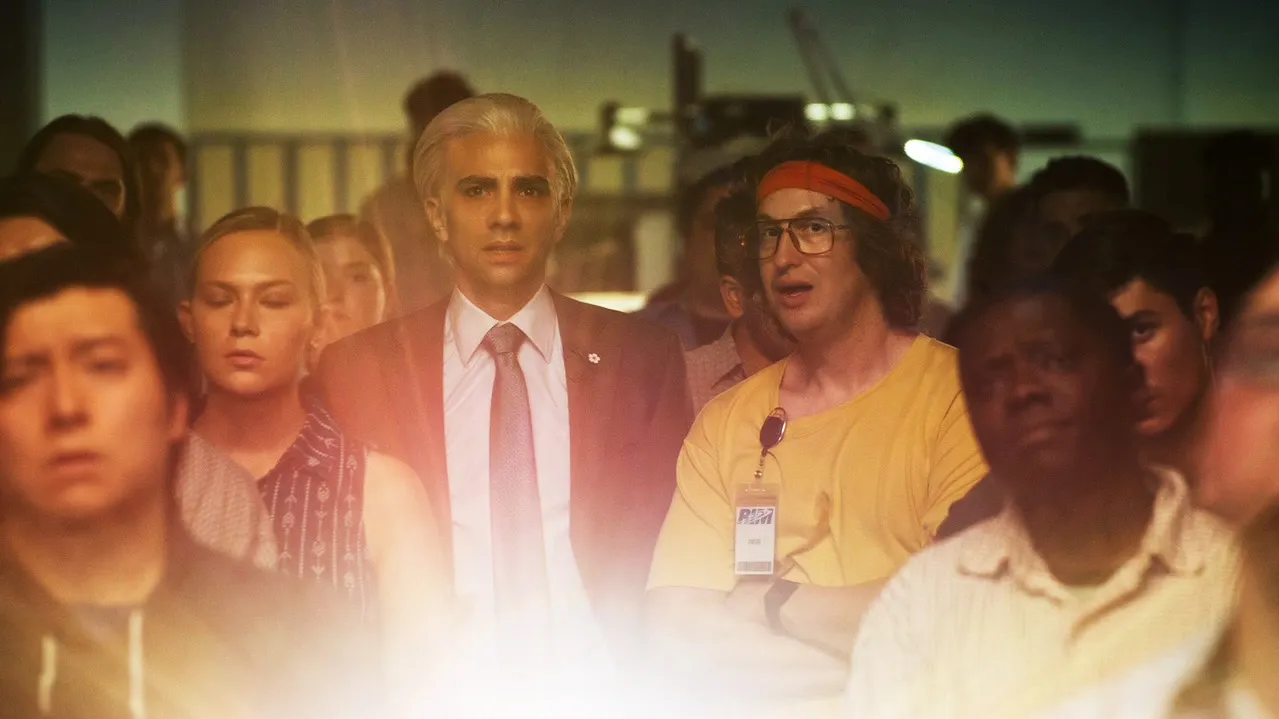
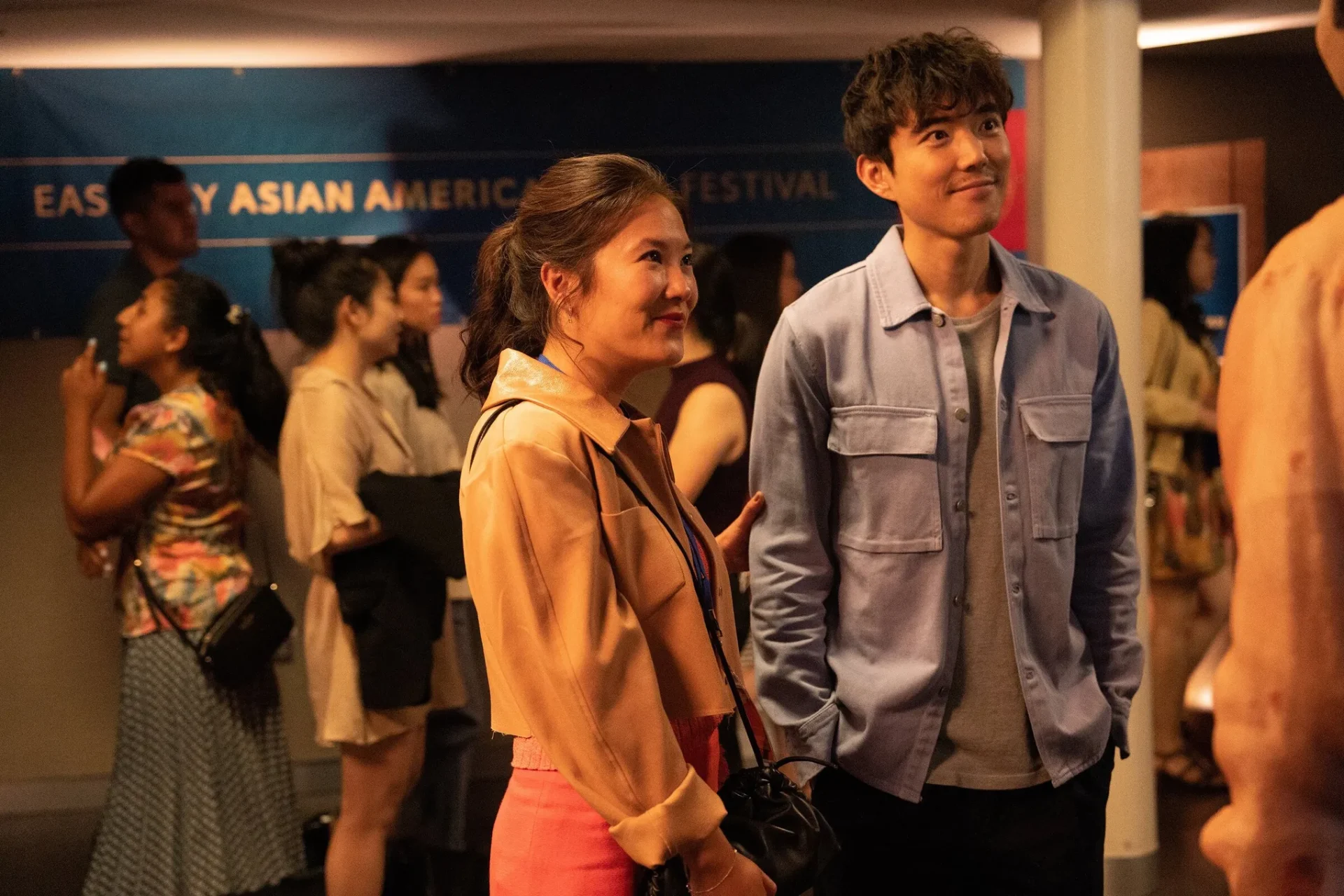
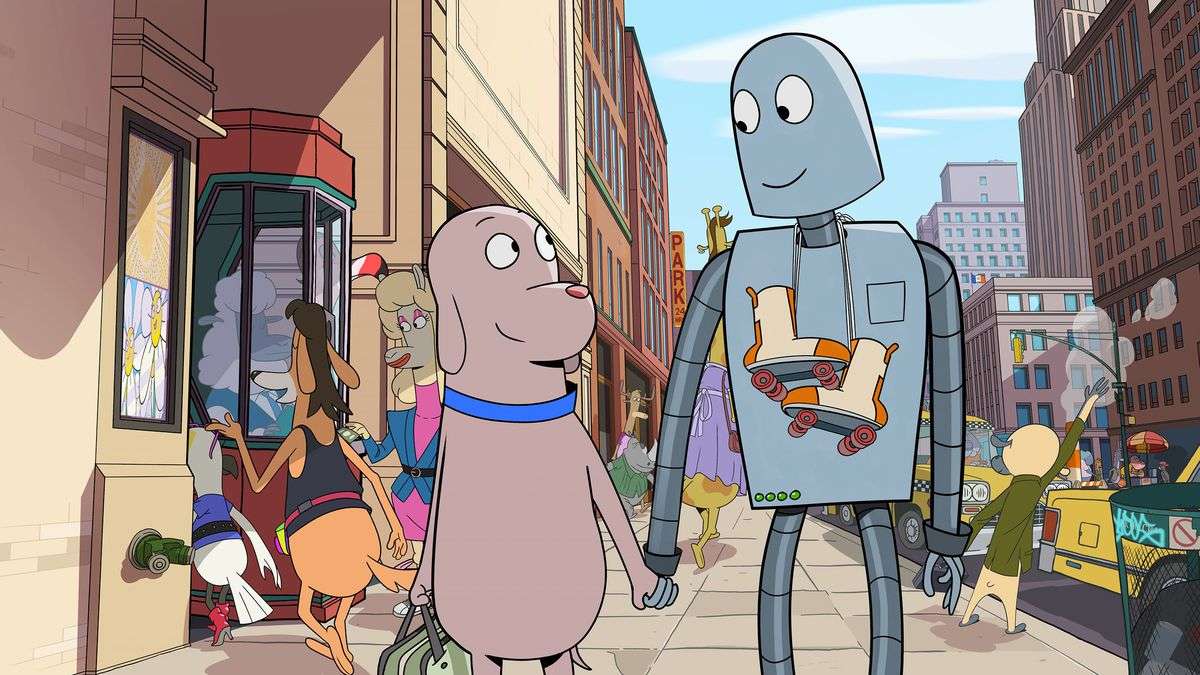
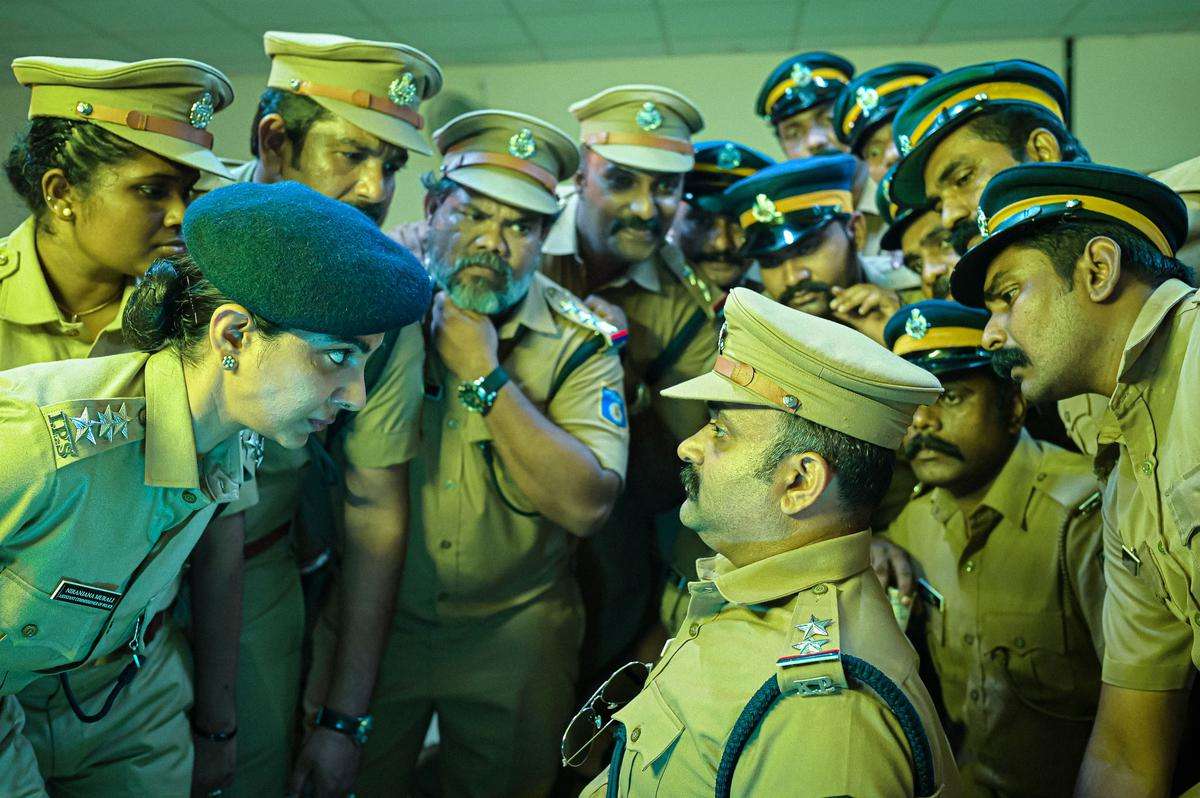


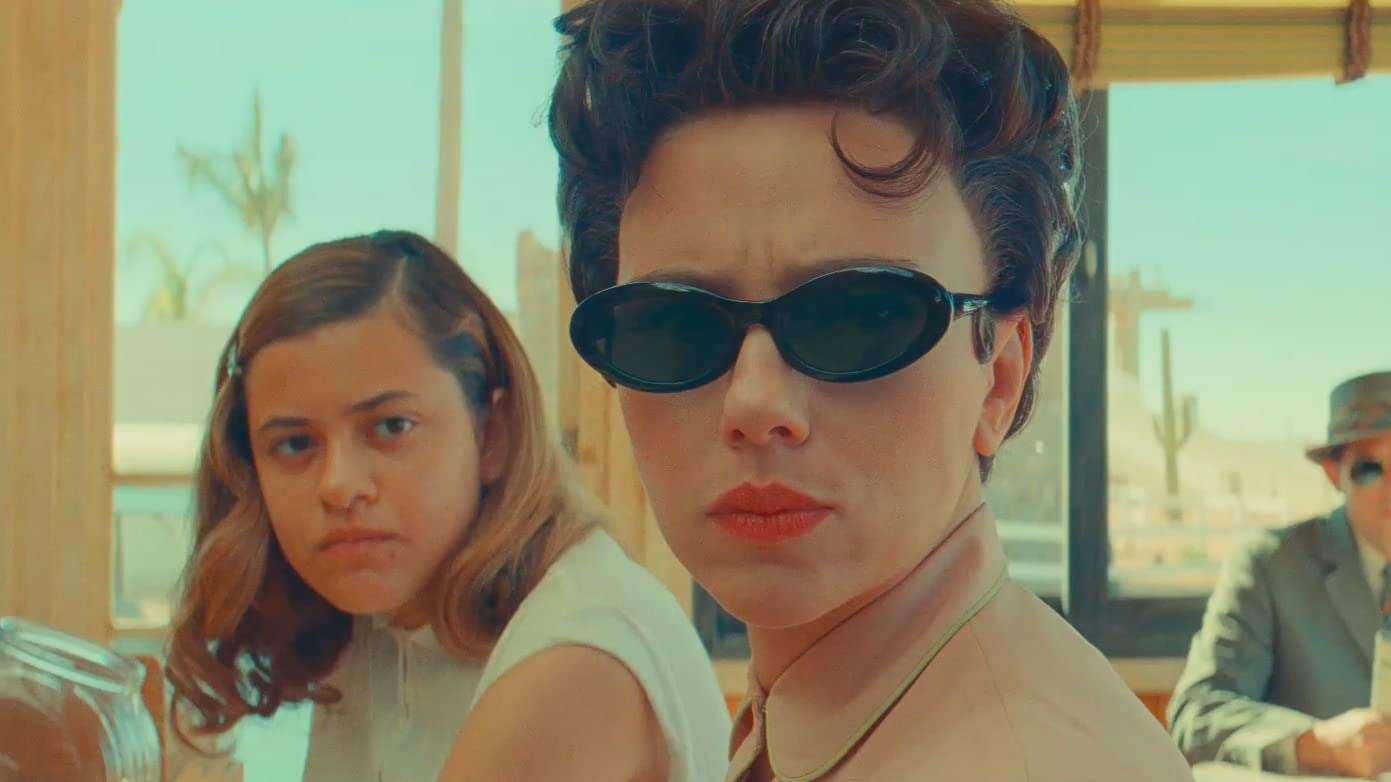
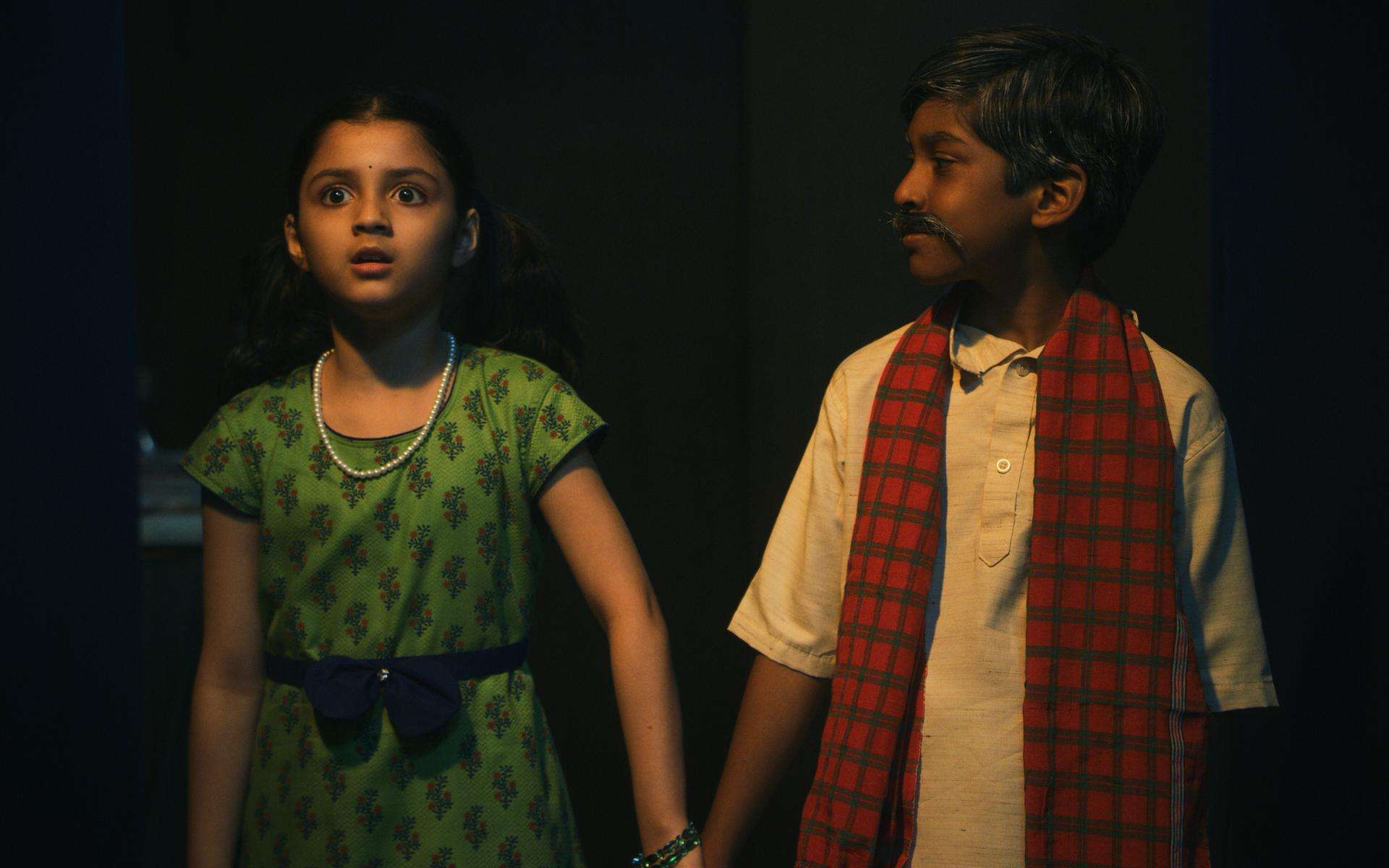
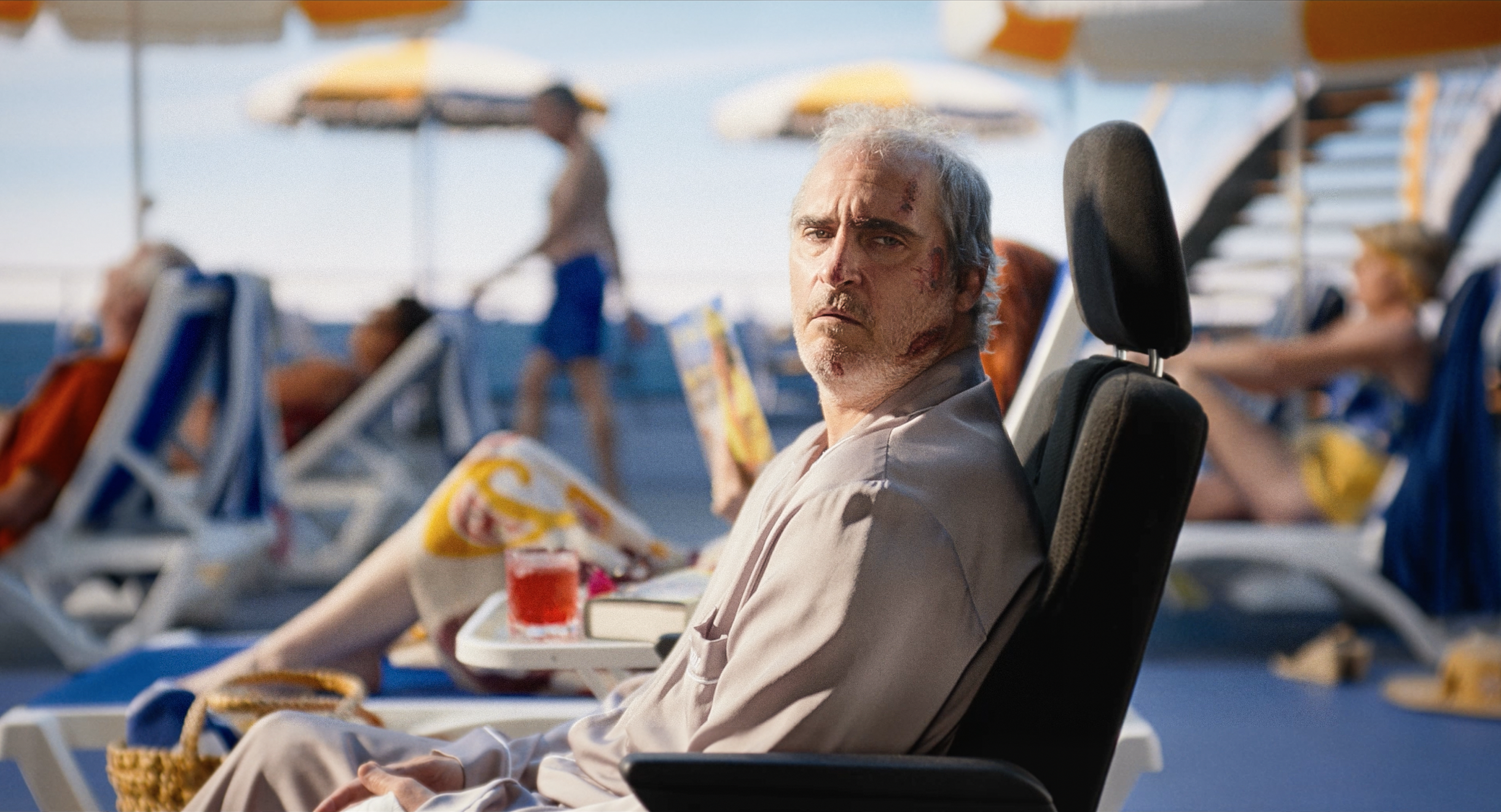
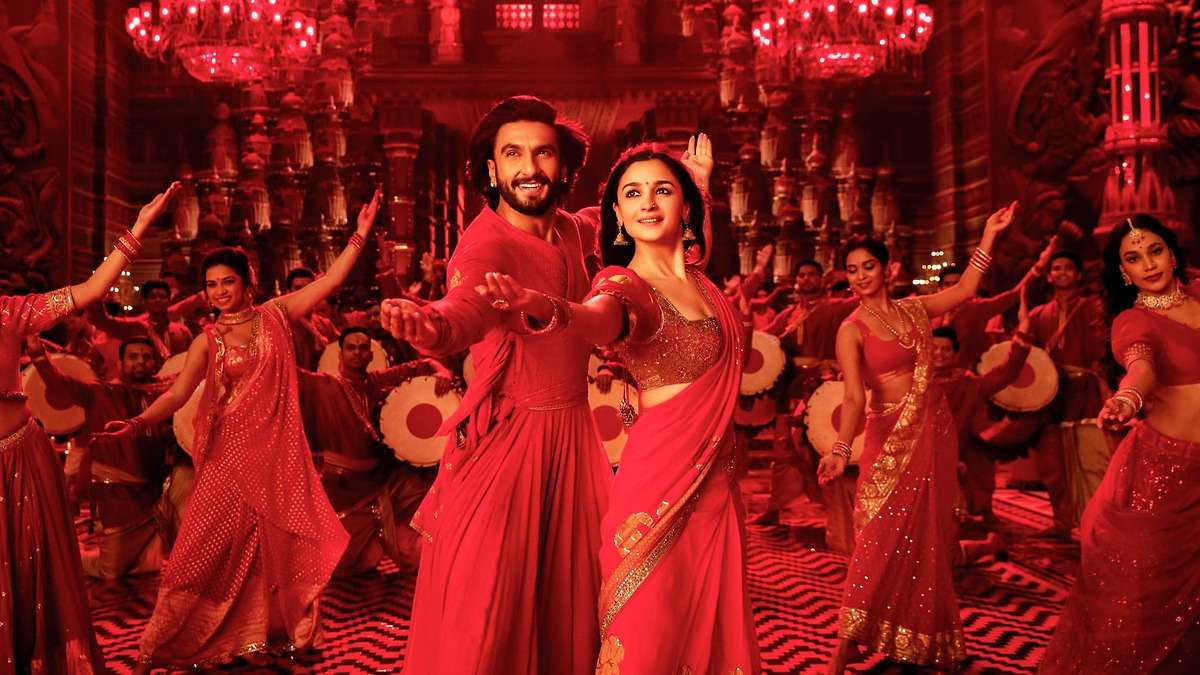


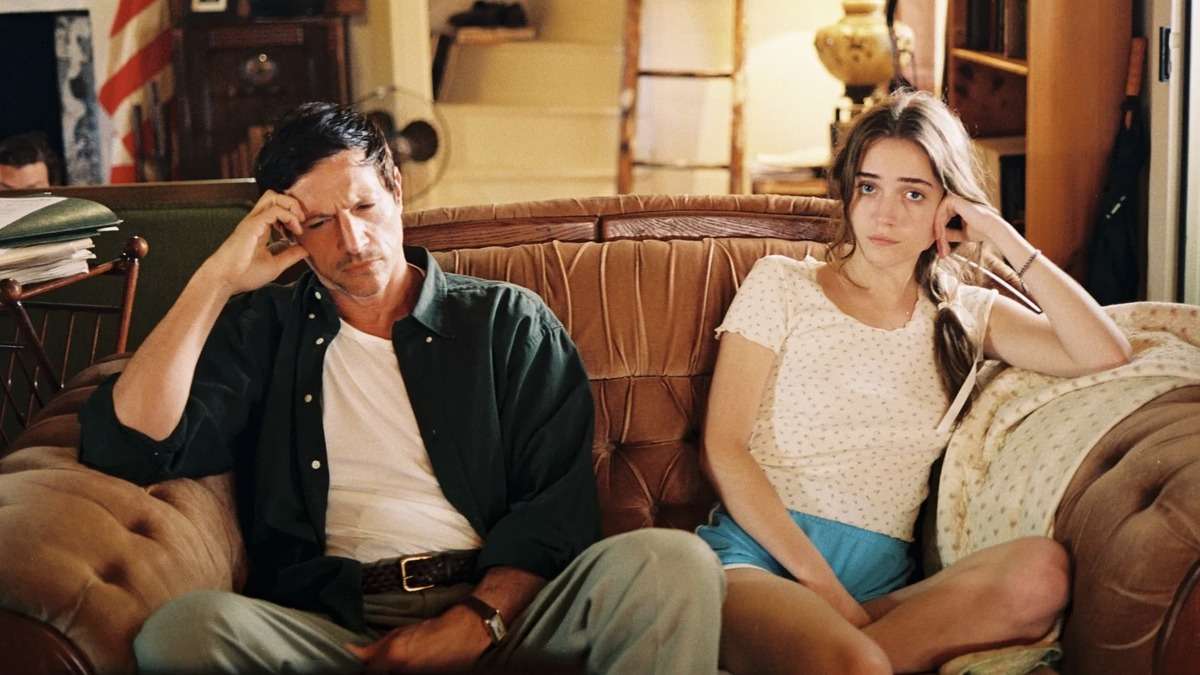
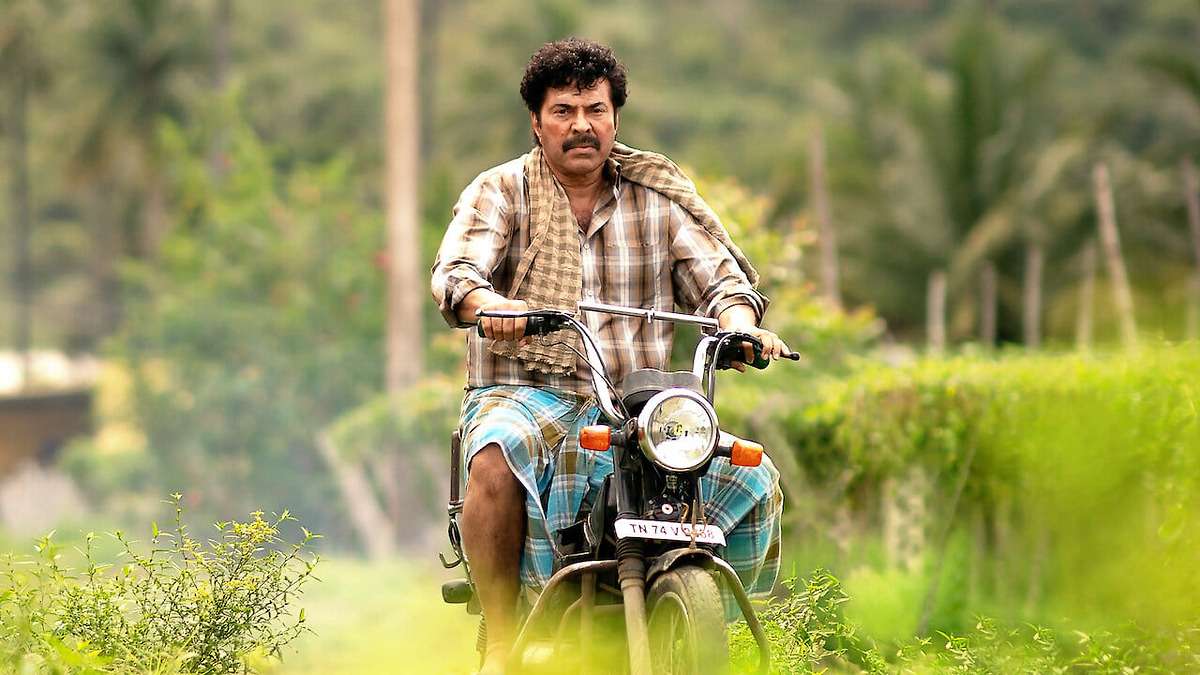
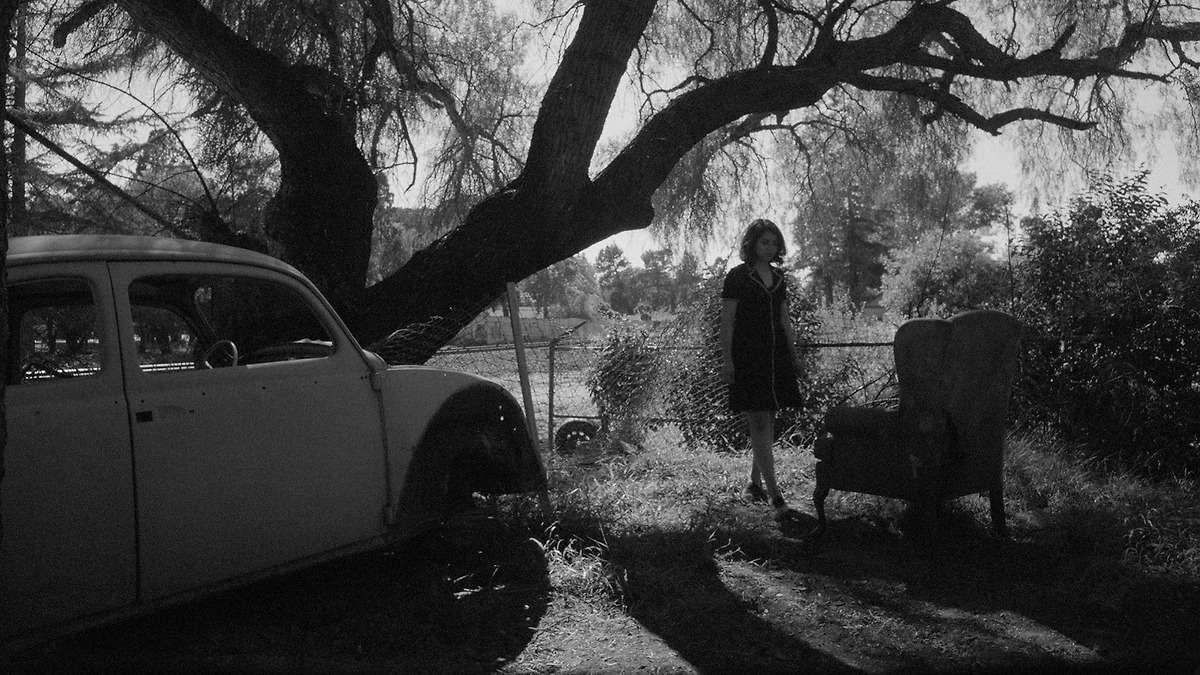
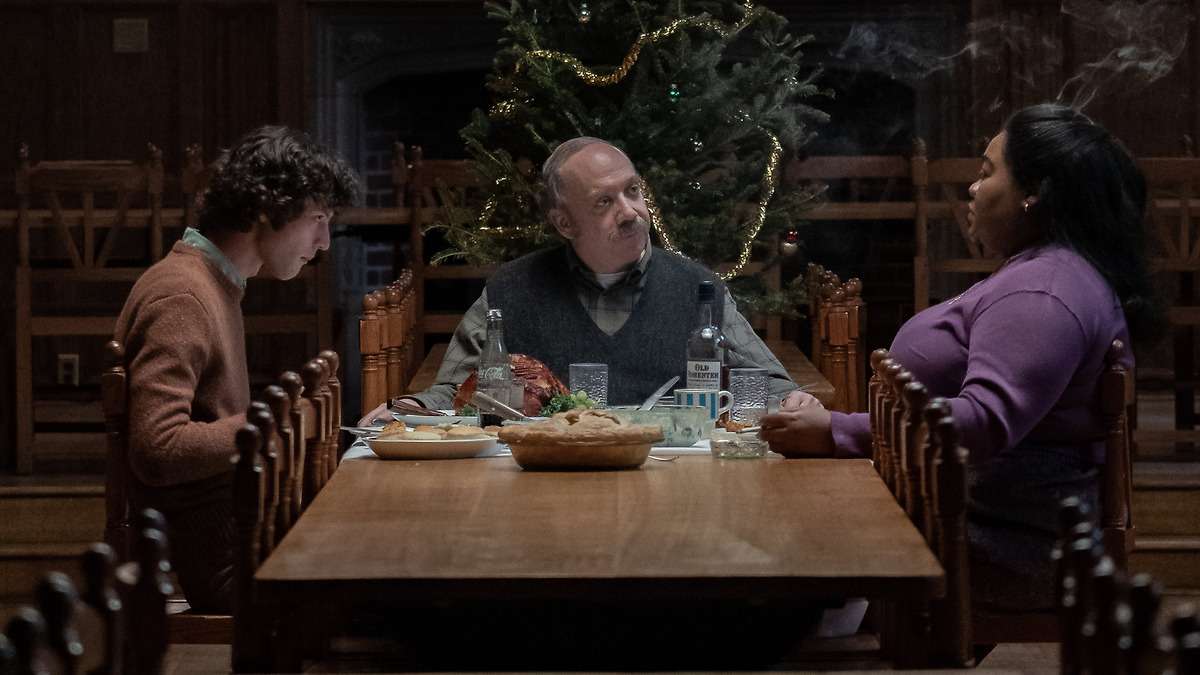
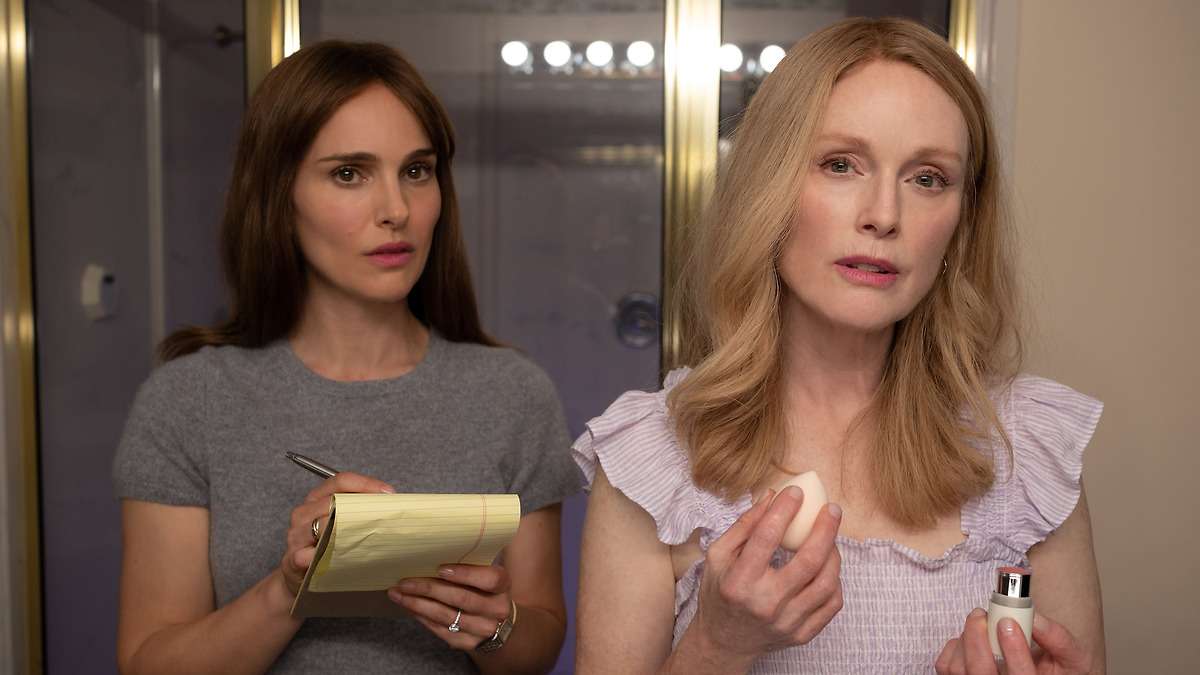



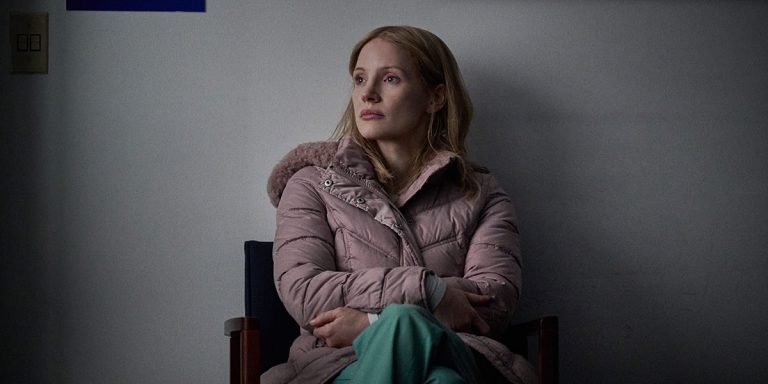

![Disappearance (Napadid Shodan) [2017]: ‘TIFF’ Review](https://79468c92.delivery.rocketcdn.me/wp-content/uploads/2017/09/disappearance_disc__05-768x384.jpg)
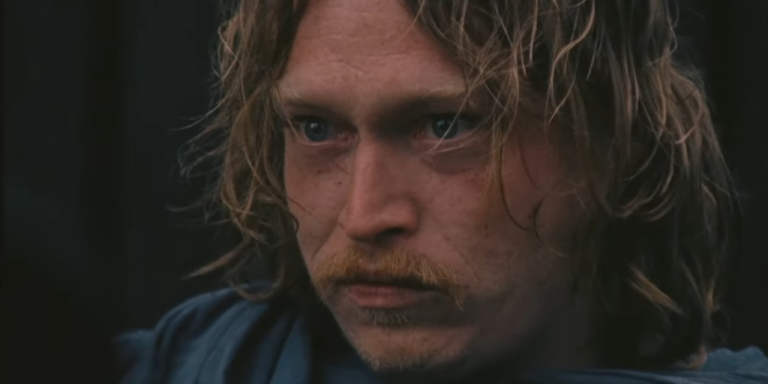

![Cargo [2018] – An Impactful Australian-Set Zombie Apocalpyse drama](https://79468c92.delivery.rocketcdn.me/wp-content/uploads/2018/05/CARGO-NETFLIX-768x432.jpg)